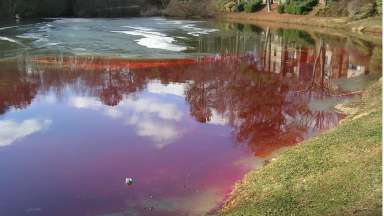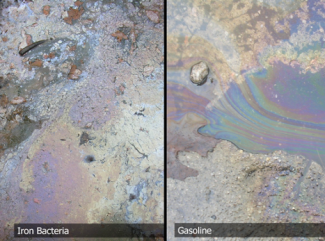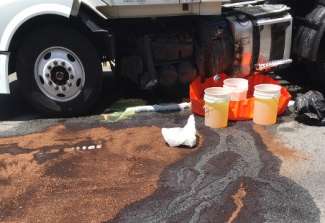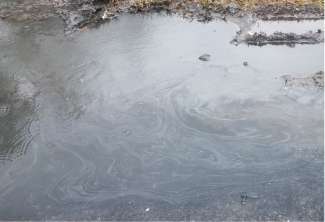Jump To:
Report Stormwater Pollution
If you see stormwater pollution, call the Stormwater Helpline at 919-996-3940 or email IllegalDischarge@raleighnc.gov. For large spills from storage tanks or vessels, call the 911.
If you see or experience a water line break, contact the Raleigh Water Call Center at 919-996-3245.
Helpful Links
In some instances, a bacterial sheen will look like oil. Oil typically bonds to itself and does not mix easily with water. To find the difference, break the sheen by disturbing the material. Bacteria will typically break into little platelets while oil will reform to itself.
Petroleum Hydrocarbons
These chemical compounds are commonly the result of accidental releases of oil or fuel from vehicles and machinery. Thousands of small fuel spills can accumulate to very high concentrations as they are collected and transported by stormwater to a receiving water.
Polycyclic Aromatic Hydrocarbons
Polycyclic Aromatic Hydrocarbons, or PAHs, are from coal, oil, gas and wood. Sources of PAHs are asphalt and coal, oil spills, vehicle exhaust, and fires.
PAHs can be toxic even at low concentrations and can impact aquatic life and human health. They are well known chemicals that can bioaccumulate in aquatic life, leading to impacts on aquatic ecosystems.



